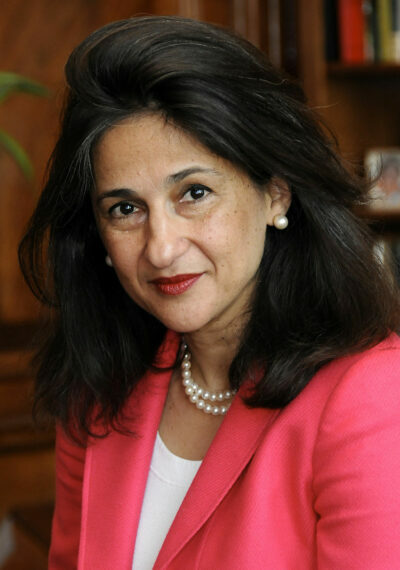NEW PARADIGM
On the need for a new social contract
How can we adapt our social systems to fit the challenges of the 21st century? We spoke to Minouche Shafik about her recent book and why she proposes a new "social contract" beyond the concept of the welfare state.
BY
MAREN BUCHHOLTZPUBLISHED
28. OCTOBER 2021READING TIME
3 MIN
In her new book “What we owe each other – a new social contract” , Minouche Shafik sets out how profound changes in technology, demography and the climate crisis have put pressure on the existing social contract and argues that the current crisis provides an opportunity to redefine it.
MINOUCHE SHAFIK explained that the 20th century social contract is broken. It was based on the concept of clear division of labour within families with a sole breadwinner who oftentimes enjoyed steady employment with fixed benefits. Female emancipation, digitalization and ageing have been influential factors in changing the economy. With the notion of a social contract, Minouche Shafik refers to a set of norms and rules that define who we live together. In her view, discussions about redistribution measures fall a little short.
She emphasizes the need to optimize the system of intertemporal distribution, i.e., that people contribute with their taxes as adults in return for being looked after before they enter and after they leave the workforce.
Nowadays, labour markets are highly flexible with the result that the share of informal work amounts to nearly one-third in advanced economy. Improving working conditions will require a minimum of social security for all, including minimum wages, basic health care and access to education. Although there have been strides in gender equality, women still carry the brunt of early years education and everyday household labour. Moreover, efforts in empowering all minorities and less well-off families are urgently needed. Many industrialized countries such as the US, the UK and Germany have seen a drop in social mobility.
According to Shafik, education is a key area in addressing this issue, which is why she proposes more public investment into early childhood education and lifelong learning.
While all of these considerations also apply to the notion of welfare, the new social contract goes beyond expanding the welfare state and also includes the private sector. One way in which business could be better included in sharing societal risks and rewards would be increasing corporate taxes and in turn providing more publicly funded support for employment benefits (such as parental leave) and a minimum pension. Her overall concept of “predistribution” is meant to combine economic and social policies with the aim to share risks better and collectively but are also in a politically and economically feasible manner.
In his comments on the book, XAVIER RAGOT added the issue of intergenerational and global solidarity. He suggested defining the “we” in “we owe each other more” more broadly. As an example, he mentioned the EU SURE (Support to mitigate Unemployment Risks in an Emergency) project, which could present a small step in creating a European welfare state. He also alluded to the difficult political path ahead for increasing risk-sharing, especially climate risk, within and between countries.
